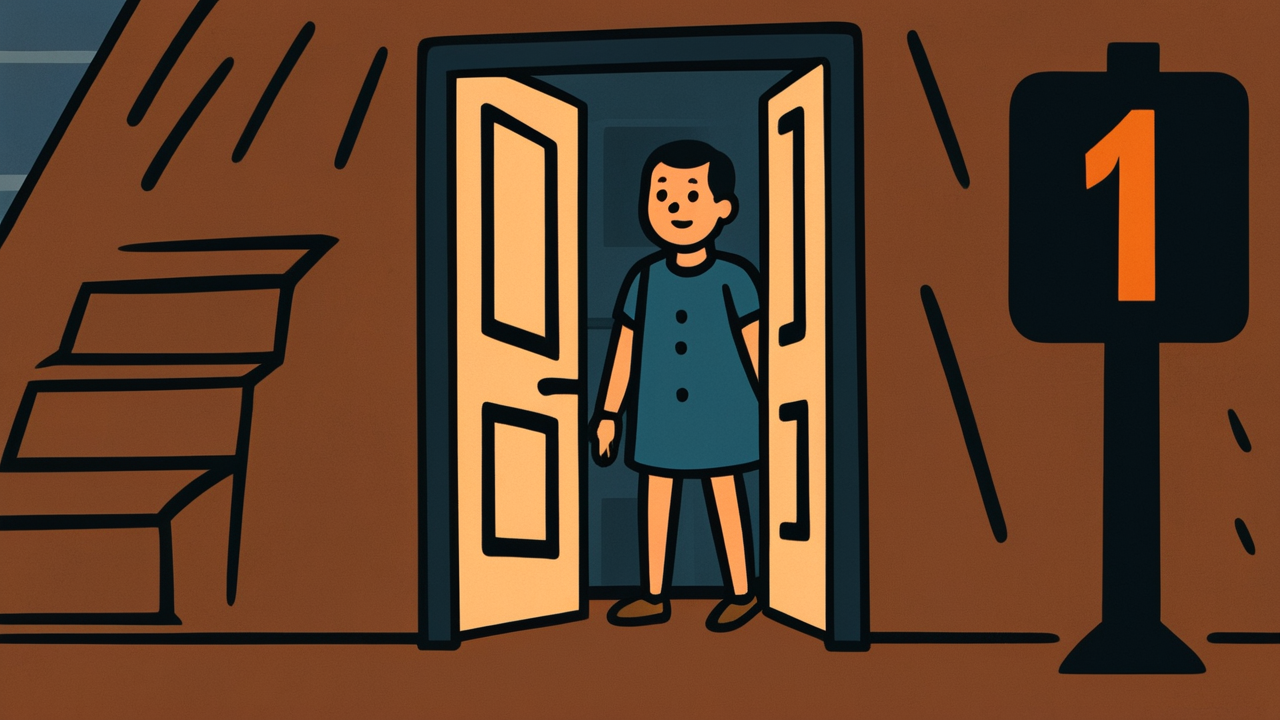How to Read “地獄の一丁目”
Jigoku no icchōme
Meaning of “地獄の一丁目”
“Hell’s first block” is a proverb that expresses the beginning of an extremely difficult situation or challenging circumstances.
This expression literally means the entrance to hell, that is, the first step of hardship. As the word “first block” indicates, it refers to the initial stage of a long journey of suffering that is about to begin. It is used when facing difficult situations or when anticipating that challenging trials are about to commence.
The reason for using this expression is to emphasize that the suffering is still just the beginning, and that even greater difficulties await, rather than simply saying “it’s painful.” Even today, it is used in situations such as the start of exam preparation, trials at a new job, or difficult phases in life, saying things like “This is still just Hell’s first block.” This proverb has a unique weight that expresses the gradual and continuous nature of suffering.
Origin and Etymology
When researching the origins of “Hell’s first block,” honestly, no clear established theory can be found. However, when considering how this expression came to be, an interesting background emerges.
First, the concept of “hell” was introduced to Japan along with Buddhism, and by the Heian period, it was already appearing in literary works. On the other hand, the expression “first block” is a term that emerged from the town division system of the Edo period. The streets of Edo were organized into districts like “XX Town First Block, Second Block,” and the first block usually meant the entrance or beginning of that town.
The combination of these two words to create the expression “Hell’s first block” probably occurred sometime after the Edo period. The idea that even the terrifying world of hell has addresses like real towns might be an expression of the humor and realistic sensibility characteristic of Edo townspeople.
What’s interesting is that this expression has more concreteness than simply saying “hell.” By using the familiar word “first block,” it may have had the effect of expressing the abstract concept of hell as a familiar and realistic place.
Usage Examples
- Seeing a colleague struggling with the harshness of new employee training, a senior colleague smiled wryly and said, “This is still just Hell’s first block.”
- When my son, who had just started studying for entrance exams, complained, I encouraged him saying, “This is still just Hell’s first block, so keep trying your best.”
Modern Interpretation
In modern society, “Hell’s first block” is showing new expansions of meaning. In our information society, the “visualization” of difficulties has progressed, and the overall picture of hardships that previously couldn’t be anticipated can now be grasped in advance. In the era of job hunting, qualification acquisition, and entrepreneurship, experiences and strategies can be easily researched on the internet.
Under these circumstances, this proverb is increasingly used as words for “making up one’s mind.” On social media, posts declaring the start of new challenges can be seen with hashtags like “#Hell’s first block.” Modern people are standing at the “first block” with a better grasp of the overall picture of difficulties than people in the past.
On the other hand, there are also problems unique to modern times. Due to information overload, an increasing number of people become overly defensive about being at “Hell’s first block” even before anything has begun. Also, the “escape route mentality” of looking for other options before overcoming difficulties is a modern characteristic.
However, the concept of “gradual growth” that this proverb embodies is finding new value in the context of modern career development and skill improvement. For modern people who find meaning in the process of clearing difficulties one by one, the expression “first block” is also the beginning of hope.
When AI Hears This
The expression “the first block of hell” aligns remarkably with modern theories of gradual escalation. This theory scientifically proves that when people fall into serious problems, they invariably start with small deviations that worsen step by step.
According to psychologist Albert Bandura’s “moral disengagement theory,” people don’t commit major wrongdoings all at once, but gradually shift their ethical boundaries through small compromises. For example, corporate fraud typically begins with “minor number adjustments,” and as this becomes normalized, it gradually develops into large-scale accounting scandals.
Behavioral economics calls this the “slippery slope effect” – once you step onto a slippery incline, it becomes difficult to stop. Research on gambling addiction has demonstrated that the first small bet becomes “the first block of hell,” and changes in the brain’s reward system make self-control ineffective.
People in the Edo period, despite lacking scientific evidence, intuitively understood that human psychology follows these patterns of gradual downfall. The warning embedded in the expression “first block” – that “this is merely the beginning” – brilliantly captures the essence of human behavior that modern science has proven. It represents a valuable cultural legacy demonstrating the sharpness of Japanese behavioral observation and psychological insight.
Lessons for Today
What “Hell’s first block” teaches modern people is wisdom about how to face difficulties. This proverb gives us the perspective of viewing suffering as “stages.” Rather than seeing life’s difficulties as one enormous mass, thinking of them as divided into first block, second block, etc., creates hope that they can be overcome.
In modern society, we tend to demand immediate results, but this proverb reminds us of the long-term perspective that “this is still just the beginning.” Any challenge – new work, relationships, learning – begins from Hell’s first block. But the fact that there’s a first block means there are also second and third blocks, and that there’s a path to eventually escape.
What’s important is not to blame yourself for being in the first block. It’s a path everyone travels, and growth begins from there. What modern people need might be the courage to accept this “beginning suffering” and the patience to keep walking.



Comments